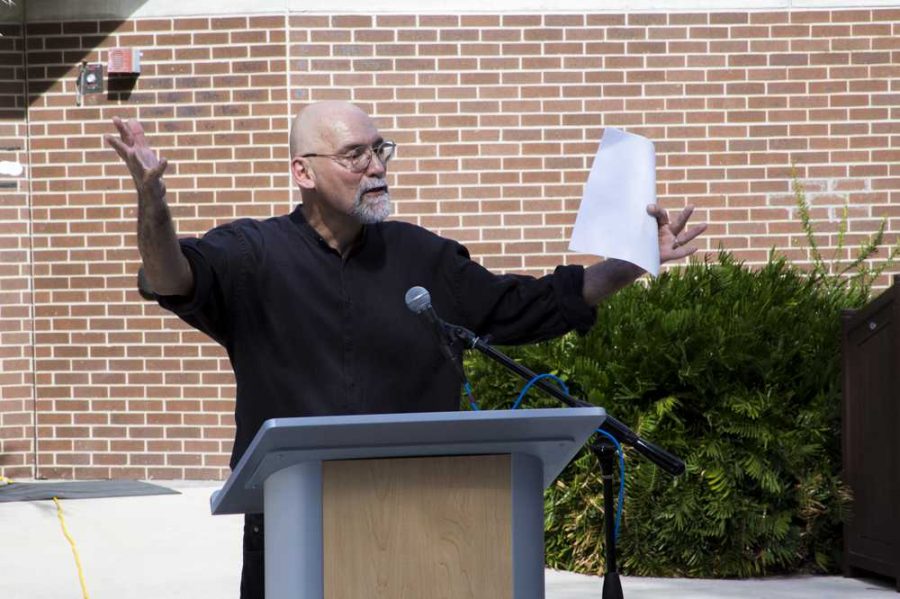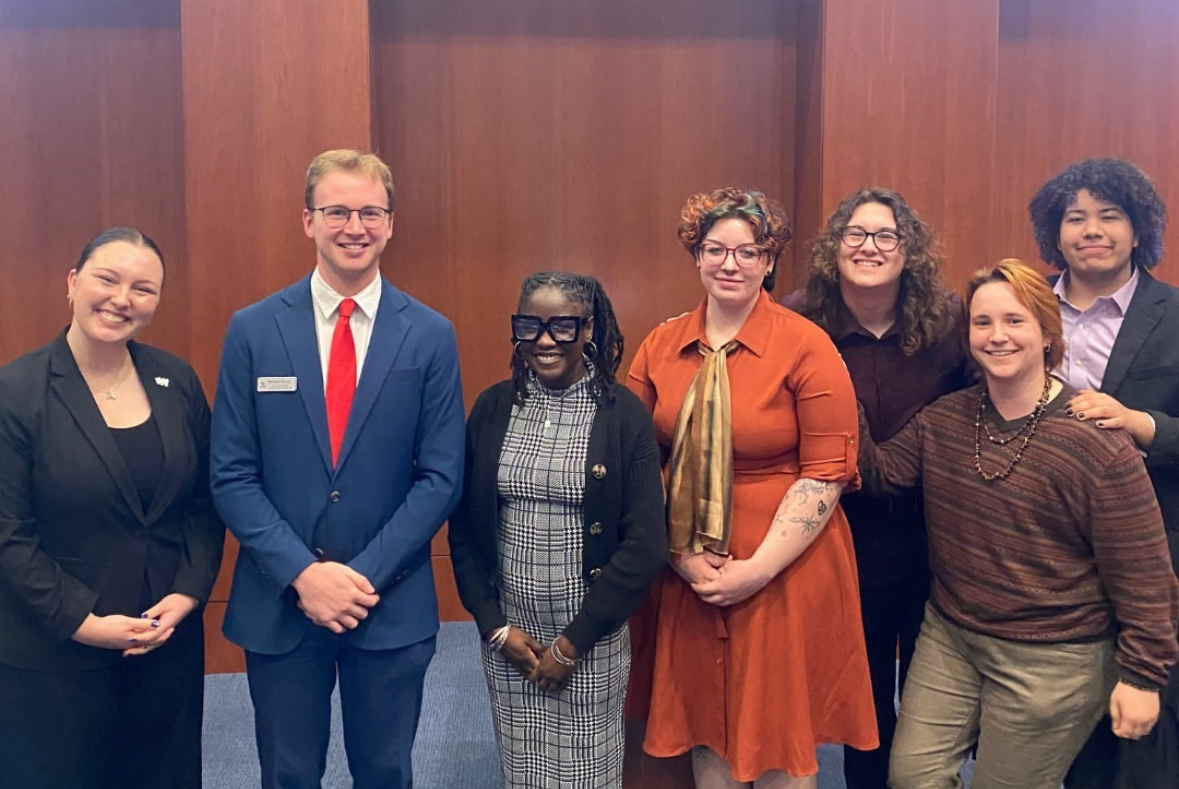If you’ve had Professor Michael Wiley for any classes, you may know his taste for thorough and engaging work. According to an article from April 29, written by Matt Soergel for the “Florida Times Union,” Wiley’s own work deeply reflects his high regard for thorough and engaging prose. You may have experienced this in the form of an A minus or a B plus (so close yet so far). For those of you who haven’t, he teaches not only Literature courses but often a creative fiction workshop as well.
Wiley has published four murder mystery novels set in the Jacksonville area and has been contracted by his publisher Severn House/Canongate to write three more set in his hometown of Chicago. He spoke with Spinnaker about why he chose to write murder mysteries and his process behind crafting a story.
The mission of his writing seems to be in creating real people that live in real places, who do things that may be just a bit outside of what you and I consider ordinary. These murder mysteries are based off of real places in Jacksonville that aren’t the types of locations you put on a post card; but rather, places that any longtime Duval citizen has some sort of relationship with (estranged or not). Locations along Philips Highway and Atlantic Boulevard often crop up in these stories that readers have funneled into the swampy category of Southern Gothic.
But how does Wiley create engaging characters? According to him, he tries to make them as human as possible.
“I’m attached to all of my characters in some way. Even the worst of the worst of them – and I can write some characters who do pretty bad things – I find a way to love,” Wiley said. “Because if I can’t find a way to love them, I’m missing something in their complexity. I’m missing something in who they are that makes them, in some senses, real.”
As for planning, he doesn’t beat out intricacies of his plots before he writes them. Wiley let’s the arc of his characters and where he feels they will end up dictate what happens to them and when. Before writing he knows he will have a hook and an ending. The rest follows the personality of his character.
“Within each book, I do know what I have to know. The hook, the crime and who’s done it,” Wiley said. “What I don’t want is for myself to be telescoping too much. It’s really good to be able to get lost a few times knowing where I need to get back to.”
But the success of his stories may not lie in engaging characters or real places peeking through the high-stakes consequences of murder. It may lie in a writing skill so mundane that those familiar with it will roll their eyes and groan as they read the next word – rewriting. If you are a writer, you most likely have a familiar distaste for arm wrestling with your second draft that you thought was done until you took it to a workshop. You have probably lost characters and scenes that you were all too attached to the idea of in your third draft. Maybe by your fifth draft you feel like it’s something entirely different than what you wanted. According to Wiley, the one that most often gets published for him is somewhere around draft eleven.
“It’s the least glamorous part. Rewriting. Just as a first reading is rarely the best reading, the first writing is even more rarely the best writing,” Wiley said. “My experience is before draft eight or nine, I’m nowhere near it. Maybe by the time of 10 or 11, I may be getting to feel that things are happening. And it’s hard, but that’s the thing that I would say is that rewriting is where the good things happen.”
After 16 years of living, writing (and rewriting) in Jacksonville, Wiley released his first mystery novel set here in Duval. “Blue Avenue” was followed by “Second Skin,” “Black Hammock” and “Monument Road.”
Wiley teaches both Literature and Creative Writing courses here at UNF. He has a detective fiction course, unique to him, and – speaking from experience – is willing to help you beat your prose into something better than what you had intended it to be.
__
For more information or news tips, or if you see an error in this story or have any compliments or concerns, contact editor@unfspinnaker.com.















